Free speech declines in the information age, endangering journalists
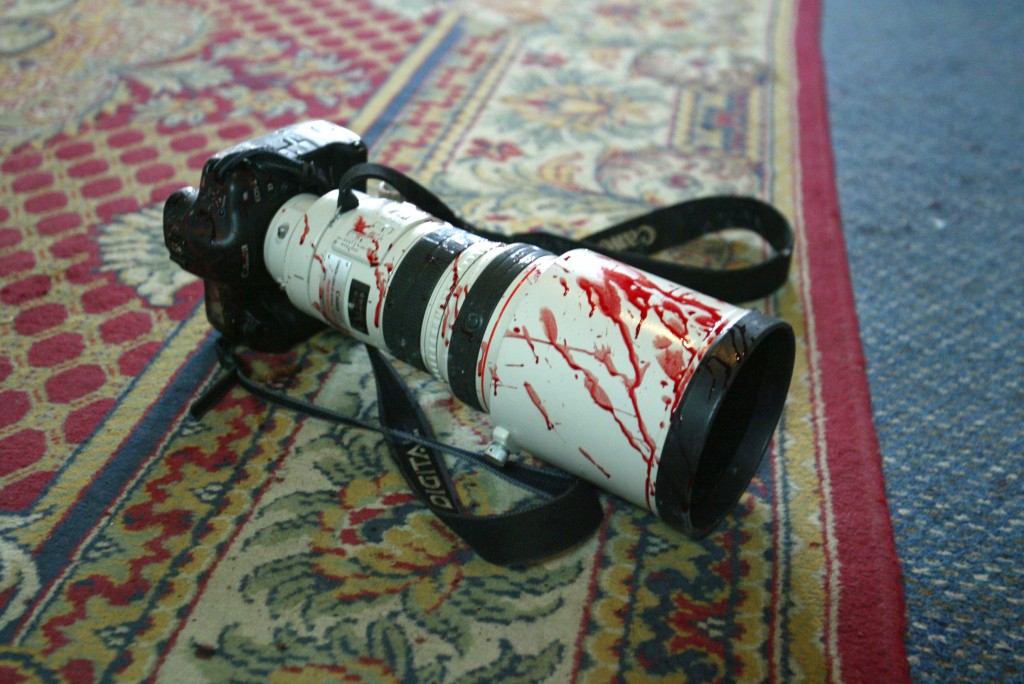
Patrick Baz/AFP/Getty Image
Journalists are being imprisoned in Turkey, the Venezuelan media has been brought under government control and in Syria, dozens of journalists have been killed or threatened to silence with torture. The global spread of the internet was originally expected to usher in an age of participation and democracy. Yet, free speech is in a crisis, according to Joel Simon, executive director of the Committee to Protect Journalists. And it’s not just free speech that’s under attack, he points out, but also journalists – the last three years have been the most dangerous for journalists in at least two decades.
![]() read more
read more
Myanmar’s ethnic media finding its voice, but faces hurdles
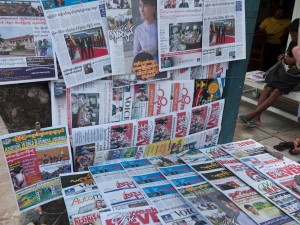
Myanmar’s media sector has opened up remarkably over the past few years (photo: Kyle James)
The country of Myanmar is a complicated patchwork of ethnic groups, languages and cultural identities. Ethnic conflict in the country, also known as Burma, existed even before independence in 1948 and increased under the iron-fisted military rule that began in 1962.
In addition, ethnic media was suppressed by the junta, which increased the sense of marginalization felt by over one-third of the population belonging to an ethnic minority.
But as the country has opened up over the past few years, ethnic media publications have begun to appear, speaking to their communities in their own languages and addressing issues relevant to them. Still, there are a good many hurdles in the way of the creation of a flourishing ethnic media sector, as onMedia’s Kyle James found during two recent trips to the Southeast Asian country.
![]() read more
read more
Proposed cyber law threatens free expression in Cambodia
In Cambodia, most media outlets firmly toe the government line. But one area where Cambodians can express themselves freely and receive and share unbiased information is on the Internet. However, a bill drafted in secret by the ruling party could put an end to that. For this year’s World Press Freedom Day, Kyle James examines the possible new restrictions that have press freedom advocates very worried, and possible reasons the government is getting strict.
![]() read more
read more
Degrees of freedom: Shaping the internet’s future
 The fourth Freedom Online Conference Free and Secure Internet for All will be held in Tallinn, Estonia, from April 28th to 29th 2014 (#FOC14). This conference will bring together high-ranking representatives from the 22 member states of the Freedom Online Coalition – among them the US, Germany, Brazil and host Estonia. They will join up with a large number of civil society actors ranging from NGOs promoting internet freedom to large companies with a vested interest in all things internet like Google.
The fourth Freedom Online Conference Free and Secure Internet for All will be held in Tallinn, Estonia, from April 28th to 29th 2014 (#FOC14). This conference will bring together high-ranking representatives from the 22 member states of the Freedom Online Coalition – among them the US, Germany, Brazil and host Estonia. They will join up with a large number of civil society actors ranging from NGOs promoting internet freedom to large companies with a vested interest in all things internet like Google.
DW Akademie’s Holger Hank highlights the four most pressing issues from the perspective of media freedom.
![]() read more
read more
Myanmar journalist cautiously optimistic about press freedom
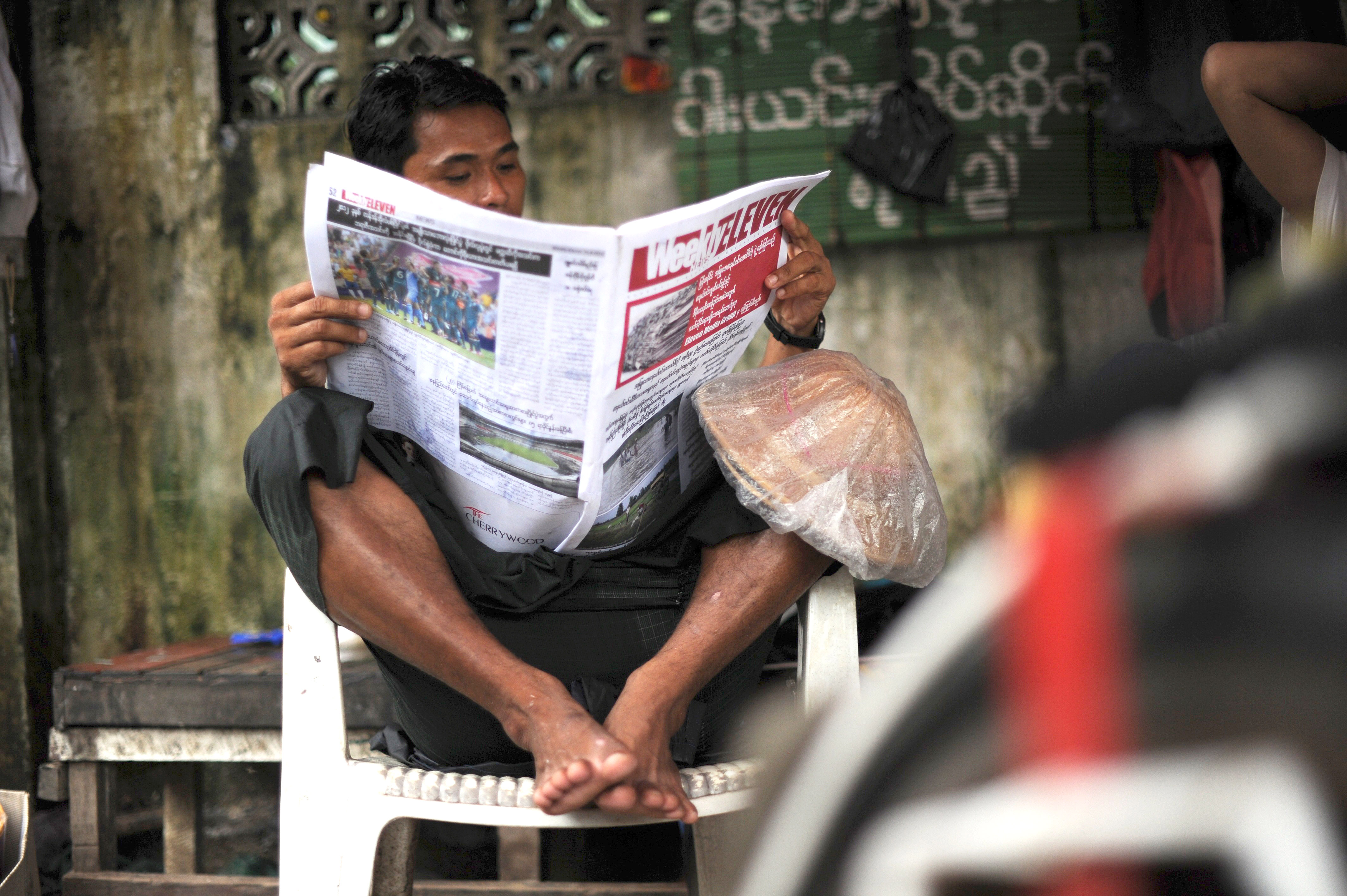
© Soe Than WIN/AFP/Getty Images
The media landscape in Myanmar is rapidly opening up. Last year, the government ended the direct censorship of the country’s media after almost fifty years of some of the most draconian press laws in the world. Privately owned newspapers are flourishing and newspaper stands now feature on many street corners. Reporters Without Borders even talked of “historic progress” in its last report on the country’s media health.
One of the few newspapers which was allowed to be published during Myanmar’s military rule was The Myanmar Times. The paper’s managing director, Zaw Win Than, has seen many changes since he first started working there as a journalist in 2006. DW Akademie’s Nadine Wojcik asked him about the shifts in the media landscape since the military junta ended in 2011.
![]() read more
read more
Human rights journalists win German Development Media Awards
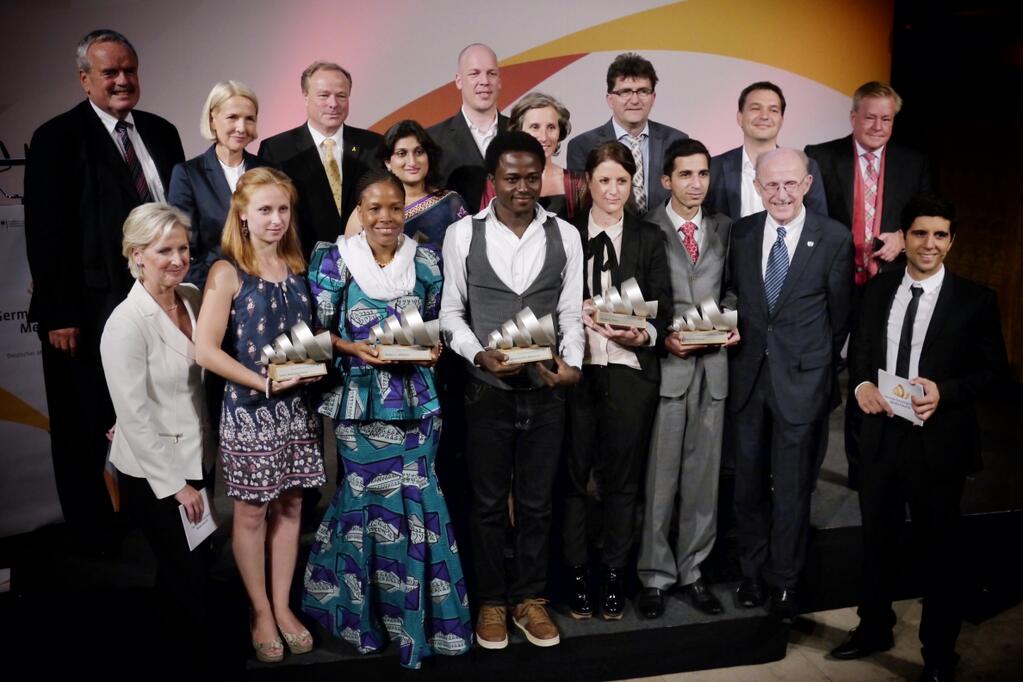
Seven journalists, including two from Africa, have been honored at the 2013 German Development Media Awards held in Berlin. The winning stories range from an examination of the crushing poverty experienced by many women and girls in Liberia to an undercover investigation of the appalling conditions inside India’s government-run mental hospitals.
Other winning reports included an online feature looking at the abuse of disabled children in private institutions in Jordan as well as a multimedia dossier which shines a light on the victims of Colombia’s forced land evictions.
Chosen by an independent jury, the winners of the human rights and development awards hail from Africa, Asia, Latin America, the Middle East, Eastern Europe and Germany. In addition, the People’s Choice Award was presented for human rights photography in Africa.
![]() read more
read more
Laura Schneider: Press freedom rankings ‘problematic’
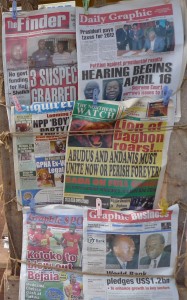 Every year, press freedom bursts into the media limelight when the freedom of press indexes are published. But these international rankings should be treated with caution, warns Laura Schneider, a media freedom expert at the Research Center for Media and Communication in Hamburg. Schneider is analyzing annual press freedom rankings for her PhD thesis. She says that although the rankings are still important, they are not free from bias or based on sound methodologies. She is working on developing an alternative method of measuring press freedom.
Every year, press freedom bursts into the media limelight when the freedom of press indexes are published. But these international rankings should be treated with caution, warns Laura Schneider, a media freedom expert at the Research Center for Media and Communication in Hamburg. Schneider is analyzing annual press freedom rankings for her PhD thesis. She says that although the rankings are still important, they are not free from bias or based on sound methodologies. She is working on developing an alternative method of measuring press freedom.
DW Akademie’s Christine Harjes talked to Laura Schneider about the problems of, and possible solutions to, the press freedom rankings.
![]() read more
read more
The state of press freedom
 Supporting free and independent media is a fundamental part of DW Akademie’s mission.
Supporting free and independent media is a fundamental part of DW Akademie’s mission.
On this year’s World Press Freedom Day, follow the “safe to speak” #pressfreedom and #wpfd conversation on Twitter and check out DW’s overview on the state of press freedom.
Because of the crucial role that journalists play, they are frequent targets of violence. According to UNESCO, more than 600 journalists have been killed over the past decade. In addition, journalists in some regions are surveilled and intimidated, or subjected to cyberattacks.
A number of Asian nations are particularly deadly for journalists. Mali, in Africa, has recently seen a downturn in press freedoms. In countries like Turkey and Tunisia, the courts are a preferred venue for silencing journalists who seek to publicize information that opposes the interests of the powerful. And in Southeastern Europe, business interests exert undue pressure on media.
Besides fostering a safe environment for journalists, laws need to be created and enforced to protect freedom of expression, which continues to be fundamental to democracy.
On World Press Freedom Day, DW takes a look at the state of press freedoms – and limitations upon them – across the globe.
Indonesia’s media struggles to maintain independence
In Indonesia, like in many Asian countries, the production of palm oil is a contentious issue. On the one hand, palm oil plantations and the palm oil industry create jobs and income. On the other hand, there are controversial land issues involved. Environmentalists criticize the disastrous effects huge palm oil plantations have on biodiversity.
The media can play a decisive role in structuring the debate and making arguments more transparent for the public. In Indonesia, one of the key players in this debate is the NGO SAWIT Watch Indonesia. Its Programme Director Rahmawati Retno Winarni discussed the relationship between the Indonesian media and organizations representing parts of civil society with DW Akademie’s Patrick Leusch.
This interview was recorded in front of a live audience during this year’s European Development Days in Brussels.
At the European Development Days, DW Akademie presented interviews and debates with representatives from politics, media and international development organizations. Each interview touched on a different aspect of media development.
Organized by the European Commission, the European Development Days is Europe’s premier forum on international affairs and development cooperation. This year, the international conference focused on food security, inclusive growth and engaging the private sector for development.
DW Akademie interviews and debates held at the conference are available on our homepage, as well as over Vimeo and Facebook.
TV journalist killed in Tanzania
Tanzanian television journalist Daudi Mwangosi died on Sunday during clashes between police and supporters of an opposition political party.
The Channel Ten journalist was killed in the village of Nyololo – about 500 km west of the capital Dar es Salaam.
Mwangosi was covering the opening of a local office of the Party for Democracy and Progress – CHADEMA.
Neville Meena, Secretary-General of the Tanzania Editors’ Forum (TEF), told Reuters that police fired a tear gas canister into Mwangosi’s stomach at close range.
“It was a deliberate move by the police, who clearly targeted this journalist. Eyewitnesses said the journalist was surrounded by police, beaten up and brutally killed.”
Mwangosi was elected chairman of the Iringa Press Club in 2011.
The International Federation of Journalists has condemned the killing and demanded an immediate inquiry.
The Committee to Protect Journalists says its “the first work-related fatality” it has documented in Tanzania since the organisation began keeping detailed records in 1992.




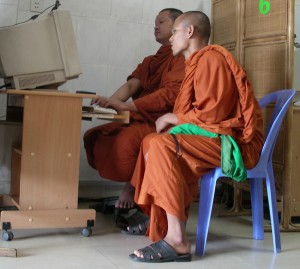




Feedback